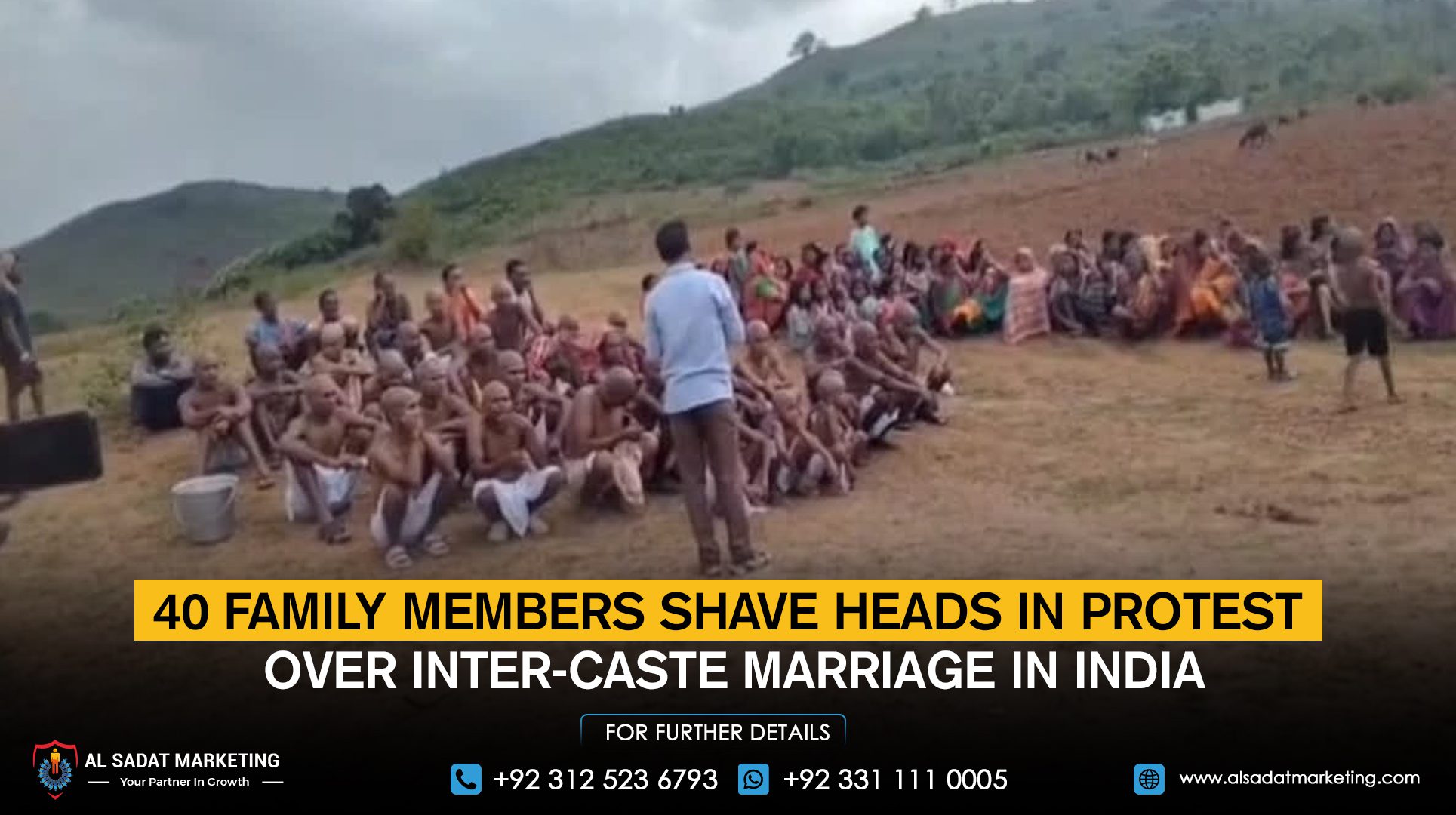40 members of a tribal girl’s family in the Raigad region of Odisha allegedly shaved their heads as part of a “purification ritual” after she married outside of her caste, which is a troubling example of the country’s ongoing caste-based prejudice.
The girl, who is a member of the Scheduled Tribe (ST) community, married a Scheduled Caste (SC) youth from a nearby hamlet in spite of her family’s disapproval, according to Indian media sources. Despite being legal, the relationship caused social resentment in the town, and her family was forced to perform a symbolic and ceremonial act of penance.
According to sources, villagers branded the girl’s family and extended relatives as “impure” for defying long-standing caste conventions, leading to a social boycott.
A shudhi karan (purification rite), including public head shaving, was performed on approximately 40 male family members in an attempt to reintegrate into the community and prevent further exclusion.
A video of the ceremony that went viral on social media showed barbers shaving the heads of dozens of men seated in rows. As part of the process, the family was also expected to sacrifice animals, such as hens and goats, according to the villagers. The bride’s family paid for every aspect of the celebration, including the offerings and customs.
Local authorities said that they had seen the viral video and that an inquiry was in progress. A local human rights lawyer stated, “This is not just a social or religious practice, it reflects deep-rooted caste prejudice that still dominates many parts of rural India.” “It is a clear violation of constitutional rights that guarantee equality, freedom, and the right to marry across caste lines.”
Intercaste weddings still encounter opposition in many regions of India, particularly in conservative and rural areas, despite legal protections provided by the Indian Constitution and the Special Marriage Act. In order to fight caste-based oppression, human rights organizations have long advocated for stricter enforcement of anti-discrimination laws and more public awareness.










